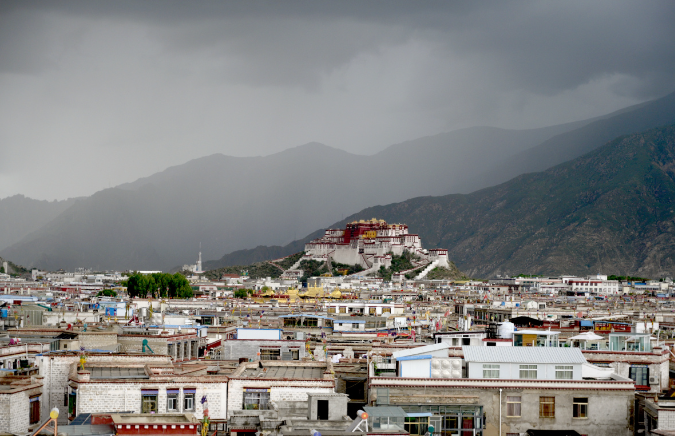China seeks unity with Himalayan neighbors
Updated: 2023-10-06 (China Daily)  Print
Print 



The Potala Palace stands in the center town of Lhasa. [Photo by Phenthok/For chinadaily.com.cn]
Beijing has called on its neighbors in the trans-Himalayan region to strengthen unity and achieve common progress in connectivity, the green economy and ecological preservation.
The countries are geographically and culturally linked, they share highly similar views on ecological conservation and "are partners in the process of achieving modernization hand in hand", senior Chinese diplomat Wang Yi said.
Wang, a member of the Political Bureau of the Communist Party of China Central Committee and director of the Office of the Foreign Affairs Commission of the CPC Central Committee, made the remark while addressing the opening of the third China Tibet Trans-Himalaya Forum for International Cooperation in Nyingchi, Tibet autonomous region, on Thursday. Representatives from over 40 countries and international organizations are participating in the three-day forum.
The trans-Himalayan region enjoys the highest altitude in the world. Founded in 2018, the forum aims to promote the interconnection and common development of the region and other countries.
In his speech, Wang pointed out that since the launch of the forum, China has carried out extensive and in-depth cooperation with the countries in the trans-Himalayan region, thus "playing an important role in promoting the economic and social development of the region and improving governance of ecology and environment".
China has signed environment cooperation agreements with India, Pakistan, Nepal and Sri Lanka.
The nation has rolled out a number of cooperation projects with countries in areas ranging from clean energy, water conservancy, sewage treatment and forest protection to coping with climate changes.
In his speech, Wang emphasized that "the century of Asia is on its way".
Wang called on countries in the region to "adhere to mutual respect and trust, and jointly safeguard the region's unity and mutual trust".
The countries should "respect each other's sovereignty and territorial integrity, refrain from interfering in one another's internal affairs, support each other on issues concerning their core interests, and stay true to resolving differences through dialog and consultation", he said.
Speaking of strengthening the region's interconnectivity, Wang emphasized the need to promote regional integration, to focus on high-quality joint construction of the Belt and Road Initiative, and to "continue to push forward bilateral and multilateral priority areas (for cooperation) and key projects such as railroads, highways, aviation, power grids and telecommunications".
In order to enhance the ecological and environmental protection capacity of regional countries, Wang proposed that countries should deepen bilateral and multilateral cooperation in the fields of climate change response, biodiversity conservation, environmental pollution prevention and control, disaster prevention and mitigation.
"China is willing to continue sharing historic development opportunities with countries in the region," he said.








